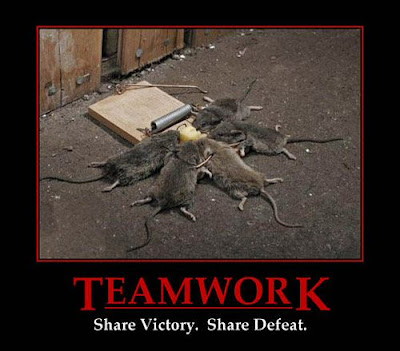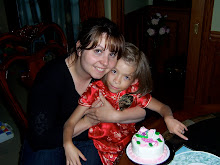
From Group To Team -- Getting There
Be Enthusiastic -- it's Contagious
Become enthusiastic about one aspect at a time. Start by initially looking for a quick problem to be solved. Most teams trace their advancement to key performance oriented events that forged them together. Potential teams can set such events in motion by immediately establishing a few challenging, yet achievable goals.First, find a problem and start to talk about it with the team; do not delegate it to an individual or small group, make it a project for everybody. Choose a simple, but distracting work-related problem and solicit everybody's views and suggestions. Next, get the problem solved. Demand urgency against a clear target. There is no need to allocate large amounts of resource or time to this, simply raise the problem and make a fuss. When a solution comes, praise it by rewarding the whole team. Also, ensure that the aspects of increased efficiency, productivity, and/or calm are highlighted since this will establish the criteria for success. When the problem has been solved, find another (preferably bigger) one and repeat.
Develop a Sense of Urgency
Team members need to believe the team has an urgent and worthwhile purpose. Establishing a sense of urgency and direction will help them know what their expectations are. The more urgent and meaningful the need to reach a goal, the more likely it is that a real team will start to emerge. The best teams define their performance expectations, but are flexible enough to allow changes to shape their own purpose, goals, and approach.Set Clear Rules of Behavior
Teams develop rules of conduct to help them achieve their purpose and performance goals. Some rules you might want to consider:- attendance - no interruptions to take phone calls
- discussion - no sacred cows
- confidentiality - personal revelations must remain among the team
- analytic approach - facts are friendly
- constructive confrontation - no finger pointing
- the most important - everyone does real work
Keep Them Informed
Challenge your team with fresh facts and information. New information causes a potential team to redefine and enrich its understanding of the objectives, thereby helping the team to set clearer goals.Grow Together
Teams must spend a lot of time together (bonding), especially in the beginning. Yet potential teams often fail to do so. The time spent together must be both scheduled and unscheduled. Creative insights as well as personal bonding require impromptu and casual interactions.Reinforcement Works Wonders
Exploit the power of positive feedback, recognition, and reward. Positive reinforcement works as well in a team context as elsewhere. For example, by being alert to a shy person's initial efforts to speak up, allows you to encourage continued contributions.Other methods include:
- Focus on both development and performance. Make teamwork the norm for all actions. Model teamwork in the way you conduct business and the way you interact with your colleagues.
- Use all your leadership tools, such as coaching, counseling, mentoring, tutoring, and concentrating on improving performance.
- Use informal processes, such as the way you communicate, showing respect, and appreciating and celebrating their achievements.
- Your feelings must show commitment, loyalty, pride, and trust in your team.
- Share the credit.
- Create subcommittees for key areas and give them decision making authority.
- Take turns having a different member facilitate or lead the meetings.
- Talk last in discussions, after you've heard from the others.
- Be clear about when you're expressing your own personal opinion, that of the organization, or that of the whole team.
Team members are deeply committed to each other's personal growth and success. That commitment usually transcends the team. A team outperforms a group and outperforms all reasonable expectations given to its individual members. That is, a team has a synergistic effect -- one plus one equals a lot more than two.
Team members not only cooperate in all aspects of their tasks and goals, they share in what are traditionally thought of as management functions, such as planning, organizing, setting performance goals, assessing the team's performance, developing their own strategies to manage change, and securing their own resources.
A team has three major benefits for the organization:
- It maximizes the organization's human resources. Each member of the team is coached, helped, and led by all the other members of the team. A success or failure is felt by all members, not just the individual. Failures are not blamed on individual members, which gives them the courage to take chances. Successes are felt by every team member, this helps them to set and achieve bigger and better successes. In addition, failure is perceived as a learning lesson.
- Its output is superior, even when the odds are not in its favor. This is due to the synergistic effect of a team -- a team can normally outperform a group of individuals.
- There is continuous improvement. No one knows the job, tasks, and goals better than the individual team members. To get real change, you need their knowledge, skills, and abilities. When they pull together as a team, they will not be afraid to show what they can do. Personal motives will be pushed to the side to allow the team motive to succeed.






